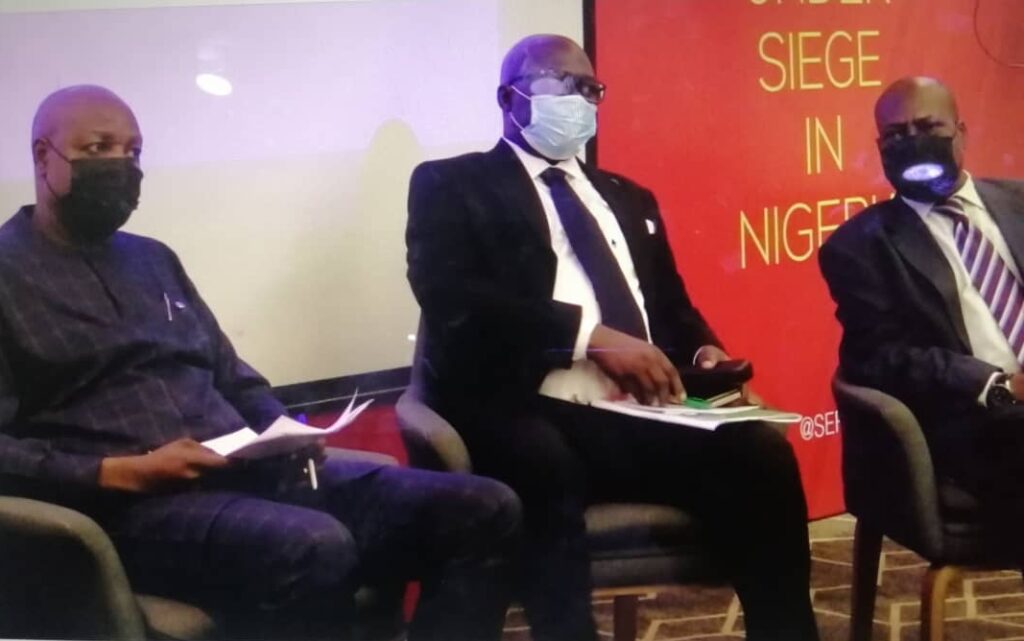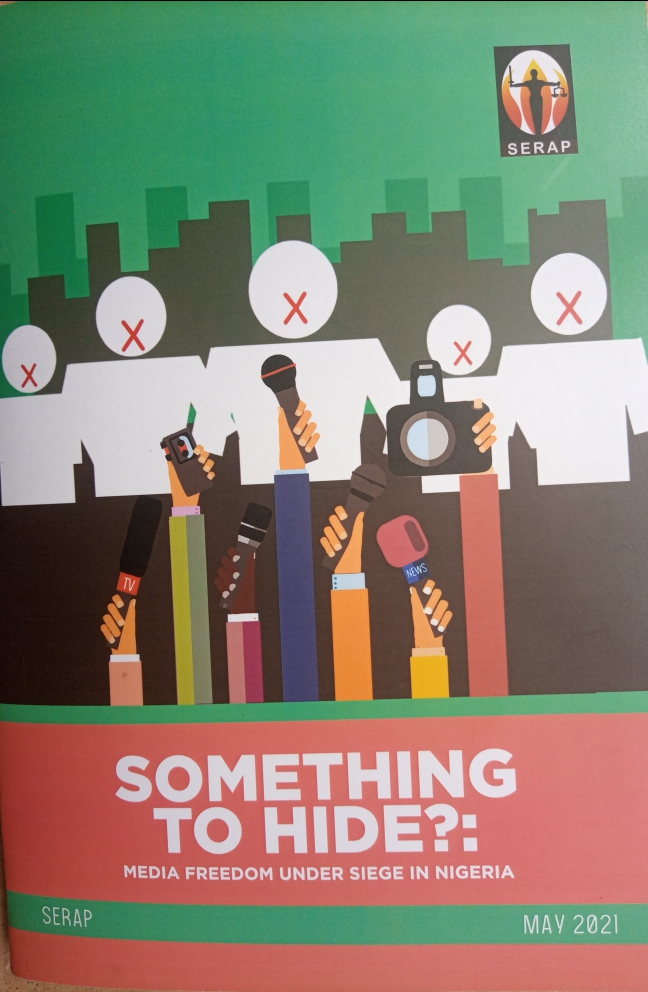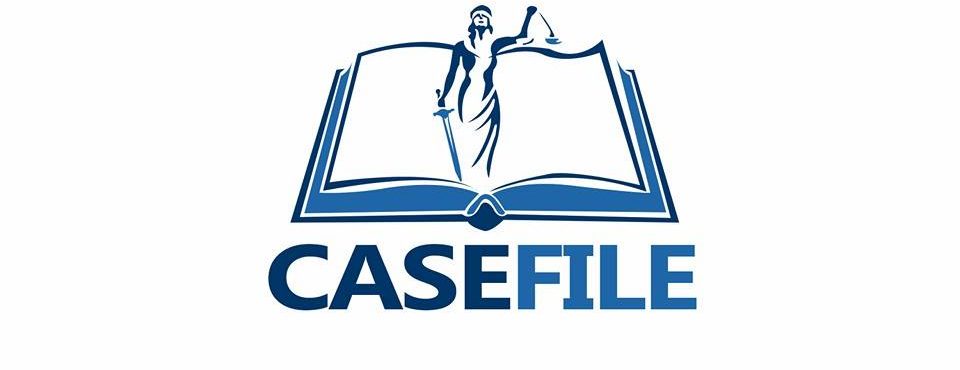Funke Busari, Lagos
Drop all charges against journalists, bloggers, and other media workers, and cease further arbitrary closures of radio and television stations without court order.”

This is the collective voice of journalists and media workers to Nigeria’s President, Muhammadu Buhari on Thursday, espousing the recommendations of Socio-Economic Rigthts and Accountability Project, SERAP in its latest report titled: “Something To Hide?: Media Freedom Under Siege in Nigeria.”

“Something To Hide?: Media Freedom Under Siege in Nigeria.”
Journalists and media workers converged at physical and online venues and frowned at the issue of shrinking press freedom and many infractions on the civic space by state and non-state actors who are violating Democratic freedoms.
The call is coming on the heels of findings by the non-profit organisation that Nigeria’s civic space has significantly shrunk in the past two years and state actors at Federal, State and local government levels have carried out violations that have shrunk the civic space.
Thus SERAP with support by National Endowment for Democracy, NED, in its report therefore recommended to the leadership of the country that security agencies, the Nigeria Police Force should fully respect the rights to freedom of expression and association, and rights of journalists and media workers.
The organisation devoted to promoting transparency, accountability and respect for socio-economic rights in the country want President Buhari to ensure that Nigeria Police Force and other authorities drop all charges against journalists, bloggers, and other media workers, and cease further arbitrary closures of radio and television stations without court order, to further ensure that the Nigeria Police Force and National Human Rights Commission promptly and impartially investigate credible allegations of threats or violence against journalists and media outlets among others.
According to SERAP, “the report documents the increasing cases of harassment, intimidation, arbitrary arrests and detention and deaths of journalists, bloggers and other media workers while carrying out their legitimate work.
“The report also details how state governors are using their powers to attack media freedom within their states and to silence journalists, bloggers and other media workers. It documents issues of hate speech, fake news, suppression of media freedom by other ex-judicial means, and criminal contempt and highlights what might be done to address the problems.
Conclusively, “The report makes several recommendations to the government of President Muhammadu Buhari; the Attorney-General of the Federation and Minister for Justice; the Minister of Information; the National Assembly; the National Human Rights Commission; the 36 state governors of Nigeria; the Nigerian Guild of Editors and Nigerian Union of Journalists; as well as recommendations to the United Nations human rights mechanisms; the African Union, and the African Commission on Human and Peoples’ Rights to push for the full and effective respect for the rights to freedom of expression, peaceful assembly and association and media freedom in Nigeria.
SERAP explained that the ultimate aim is to use the report’s recommendations to promote freedom of expression and media freedom in Nigeria, ensure journalists are free from intimidation and harassment and to encourage more reports on corruption issues by journalists and active citizens’ participation in the fight against corruption.
In deliberate effort to address the challenges, veteran journlaists, Mr. Ray Ekpu, Mr. Sunday Abati, a former spokesperson to erstwhile Nigeria’s president, Goodluck Jonathan and Mr. Mustapha Isah, President, Nigeria Guild of Editors gave some piece of advice to journalists to better help them uncover the hidden truth for public good.
They also called attention to issues that are impeding press freedom and charged their colleagues to observe ethical tenets.
Mr. Femi Falana, a constitutional rights lawyer set the tone for the event with a keynote address where he encouraged journalists to latch on the use of legal instruments to enthrone their rights when they are being trampled upon.
Mr. Richard Akinnola, a pro-democracy activist/ journlaist who worked extensively on the report, harped on the importance of why journalists should familiarise themselves with legal instruments that spelt out their rights.
The Executive Secretary, National Human Rights Commission, Tony Ojukwu, Esq. represented by Halimat Oyedele encouraged other stakeholders to cooperate with SERAP in its advocacy on the rights of journalists for public good.
All discussants agreed that state actors, and government entities have legally binding obligations to ensure and promote an open civic space because Nigeria is a democracy.
Veteran journalist, Mr. Ray Ekpu who was nostalgic about the nation’s past, gave insight on why media stake holders should seek for press freedom.
He explained this on the backdrop of the insecurity plaguing the country, exposing children to kidnapping, and killings.
According to him, “I have been to 18 countries, I don’t see the kind of things happening in Nigeria today.”
He related further that there is a gross retrogression on every aspect of lives.
Adding that this is not the kind of country he thought he would live in while he was growing up.
“Today, your child can not go from here to there without having high blood pressure.” Even if he is accompanied by soldiers, by police men, you can not be sure because what happens is who pulls the trigger first?
He opined that if six million arms are in the wrong hands, it means who ever pulls the trigger first wins.
He called out parliamentarians on their promises. Ekpu said the elected lawmakers failed to tell Nigerians that they would make laws that will abridged freedom.
Speaking, “They did not tell us that they will make obnoxious laws.”
Mr. Isah warned that media practitioners must avoid escalating conflict with the manner they report issues.
He urged striking of balance between reporting truth and endangering lives.
Said he, “Whatever it is we write affects the lives of people.”
On his part, Mr. Abati however has some cautionary measures for media practitioners.
“Always warn your viewers as a precaution.”
Training and re-training of reporters and editors among other tips were highlighted.


